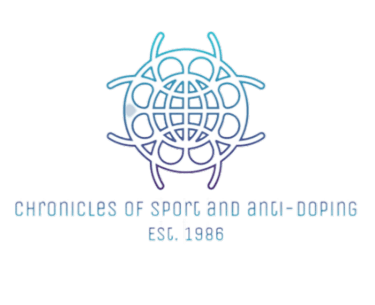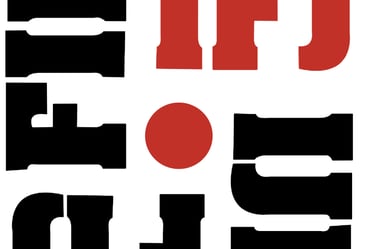"The Unusual Defense Strategy: World Champion Athlete's Controversial Claim Raises Questions on Doping Allegations"


WADA's new disgrace. As the news of the French athlete's claim spread like wildfire, the sports community was left in a state of disbelief and confusion. The idea that an athlete would resort to such extreme measures to avoid the consequences of a positive doping test seemed almost too far-fetched to be true. Yet, it also shed light on the intricate web of doping regulations and the pressure that athletes face to perform at the highest level.
Doping has been a long-standing issue in the world of sports, with athletes constantly seeking ways to gain a competitive edge. The use of performance-enhancing drugs not only undermines the integrity of the sport but also poses serious health risks to the athletes involved. In an attempt to curb doping, sports organizations have implemented stringent testing protocols and harsh penalties for those who are caught using banned substances.
However, the case of the French world champion athlete brings to the forefront the question of whether the current doping regulations are sufficient in addressing the complexities of the issue. While the focus has primarily been on testing for banned substances, it is evident that there may be other factors at play that can potentially compromise the fairness of competition.
The athlete's claim of engaging in a sexual encounter to avoid sanctions highlights the potential loopholes that exist within the system. It raises concerns about the influence of power dynamics and the vulnerability of athletes in the face of intense scrutiny. The pressure to succeed and the fear of tarnishing one's reputation can push athletes to make desperate choices in order to maintain their standing in the sport.
Furthermore, this revelation also underscores the need for a comprehensive approach to addressing doping in sports. While testing for banned substances is a crucial aspect of anti-doping efforts, it is equally important to address the underlying issues that drive athletes to resort to such extreme measures. This includes providing support systems for athletes, promoting education and awareness about the consequences of doping, and creating an environment that prioritizes fair competition and the well-being of athletes.
The world of sports is no stranger to scandal and controversy, but the case of the French world champion athlete and her claims of engaging in a sexual encounter to avoid doping sanctions has opened up a new chapter in the ongoing battle against doping. It serves as a stark reminder that the fight against doping is not just about catching athletes who cheat but also about understanding the complex factors that contribute to such behavior and working towards a more equitable and transparent sporting landscape.
The Success of Isaora Tibus
Isaora Tibus, a highly accomplished French fencer, has achieved remarkable success throughout her career, winning numerous medals at prestigious tournaments. Her journey to becoming a world-class athlete has been nothing short of inspiring. From a young age, Tibus displayed an exceptional talent for fencing, demonstrating a natural ability to strategize and execute precise movements with her weapon of choice.
As Tibus progressed through the ranks, her dedication and unwavering commitment to her craft became evident. She trained tirelessly, honing her skills and refining her technique under the guidance of seasoned coaches. Her hard work paid off as she began to make a name for herself in the fencing community, earning recognition for her exceptional talent and fierce competitive spirit.
Throughout her illustrious career, Tibus has faced formidable opponents on the international stage. From the adrenaline-pumping bouts at the Olympic Games to the intense clashes at the World Championships, she has consistently showcased her prowess and determination, leaving spectators in awe of her skill and tenacity.
Her success has not come without sacrifice. Tibus has dedicated countless hours to grueling training sessions, pushing herself to the limit both physically and mentally. She has endured rigorous conditioning exercises, meticulously fine-tuning her strength, speed, and agility to gain a competitive edge over her rivals. Her unwavering focus and discipline have been instrumental in propelling her to the top of her game.
However, on January 14th, Tibus faced an unexpected setback. During the World Team Championships, she tested positive for the presence of ostarine, a banned substance. This revelation sent shockwaves through the fencing community and raised questions about the integrity of her achievements. Tibus vehemently denied any intentional use of performance-enhancing drugs, asserting that the positive test result must be a result of contamination or a false positive.
As the news spread, Tibus found herself embroiled in a legal battle to clear her name. She cooperated fully with anti-doping authorities, providing them with access to her medical records and supplements. She enlisted the support of experts to investigate the source of the banned substance and prove her innocence.
Throughout this challenging period, Tibus remained resolute in her determination to protect her legacy and salvage her reputation. She maintained her innocence, asserting that her success was a result of her tireless work ethic and natural talent alone. Her supporters rallied behind her, believing in her integrity and standing by her side as she fought to prove her innocence.
As the investigation unfolded, evidence emerged that supported Tibus's claims of contamination. It was discovered that a supplement she had been taking for years had been tainted with ostarine due to manufacturing errors. This revelation shed new light on the situation and bolstered Tibus's case.
After a lengthy and exhaustive legal battle, Tibus was finally exonerated. The anti-doping authorities acknowledged the evidence of contamination and cleared her of any wrongdoing. Tibus's name was once again restored, and she was able to resume her fencing career with the respect and admiration she rightfully deserved.
Isaora Tibus's story serves as a testament to the resilience and determination of athletes in the face of adversity. Her journey from a talented young fencer to a world-renowned champion has been marked by triumphs and challenges alike. Through it all, Tibus has remained steadfast in her pursuit of excellence, proving that true success is not measured solely by medals and accolades but by the strength of character and integrity.
This case sparked a heated debate about the accuracy and reliability of doping tests and the potential impact of personal relationships on an athlete's career. Critics argued that the presence of mestorolone in Yastremska's body could have been a result of contamination or unintentional exposure, rather than intentional doping. They questioned the effectiveness of doping tests in accurately determining an athlete's guilt or innocence.
Furthermore, this case shed light on the importance of considering the individual circumstances of each athlete when evaluating doping allegations. Yastremska's lawyers argued that her intimate relationship with her boyfriend was a crucial factor in understanding how the banned substance entered her body. They emphasized the need for a nuanced approach to doping cases, taking into account the unique circumstances and potential mitigating factors that may influence an athlete's actions.
While this particular case ended in Yastremska's favor, it highlighted the need for continued research and development of doping detection methods. The World Anti-Doping Agency (WADA) and other governing bodies have a responsibility to ensure that their testing procedures are as accurate and reliable as possible. This includes regularly updating the list of banned substances and refining the techniques used to detect them.
Moreover, the controversy surrounding doping in sports extends beyond individual cases. It raises important questions about the pressures athletes face to perform at the highest level and the lengths they are willing to go to gain a competitive edge. The allure of fame, fortune, and success can sometimes overshadow the importance of fair play and the long-term consequences of doping on an athlete's health.
As the sporting world becomes increasingly competitive and lucrative, the fight against doping must remain a top priority. Stricter penalties, increased education and awareness, and a commitment to fostering a culture of clean sport are essential in preserving the integrity of sports and ensuring a level playing field for all athletes.
Furthermore, it is important to consider the potential psychological and emotional pressures that athletes face in the highly competitive world of sports. The pursuit of success and the fear of failure can create a tremendous amount of stress, leading individuals to make decisions that may seem unconventional or even desperate.
In the case of Isaora Tibus, it is possible that she felt cornered and believed that engaging in sexual activity with an American would provide her with a means to escape the consequences of a positive doping test. While this may seem like a drastic measure to some, it is crucial to remember that people can act irrationally when faced with dire circumstances.
Moreover, the world of sports is no stranger to scandal and controversy. Over the years, we have seen numerous cases of athletes resorting to unconventional methods to gain a competitive edge or avoid punishment. From blood doping to performance-enhancing drugs, the lengths some individuals are willing to go to achieve success can be astonishing.
However, it is essential to approach these situations with caution and not rush to judgment. Just because an athlete makes a unique defense strategy does not automatically make it false or invalid. In the pursuit of justice, it is crucial to gather all the evidence and thoroughly examine the circumstances surrounding the case.
Ultimately, the truth will prevail, and it is the responsibility of the relevant authorities to conduct a fair and thorough investigation into Isaora Tibus' claims. Only then can we make an informed judgment on the validity of her defense strategy and whether it should be taken into consideration in the final decision.
One of the main challenges in doping regulations is the issue of contamination. Athletes can unknowingly consume banned substances through contaminated supplements or even contaminated food. This presents a major problem because it can be incredibly difficult to prove that an athlete did not intentionally take a prohibited substance.
In the case of Dayana Yastremska, she tested positive for a banned substance called mesterolone. Yastremska claimed that the positive test was a result of contamination from her mother's medication, which she had been using to treat a health condition. While Yastremska provided evidence to support her claim, including medical records and witness statements, it was still a challenging process to prove her innocence.
One of the reasons why proving contamination can be difficult is because the source of the banned substance may not always be traceable. Contaminated supplements, for example, may not list all the ingredients on their labels, making it impossible for athletes to know what they are consuming. Additionally, contaminants can be present in very small amounts, making them difficult to detect and trace back to their source.
Another issue that arises in doping cases is the potential for intentional sabotage. Athletes competing at high levels often face intense competition, and some may resort to unethical tactics to gain an advantage. This can include intentionally contaminating an opponent's food or drink with a banned substance, with the aim of getting them disqualified. Proving intentional sabotage can be extremely challenging, as it requires concrete evidence and a thorough investigation.
The complexity of doping regulations is further exacerbated by the constantly evolving nature of performance-enhancing substances. New substances are constantly being developed, and it takes time for regulatory bodies to identify and ban them. This means that athletes may unknowingly consume a substance that was not on the banned list at the time, but is later added to the list. Proving that an athlete did not intentionally take a newly banned substance can be a difficult task.
In conclusion, the world of doping regulations is a complex and challenging one. Athletes must be vigilant in ensuring that they do not consume any banned substances, but even with the utmost caution, they can still be at risk of contamination. The case of Dayana Yastremska highlights the difficulties faced by athletes in proving the source of a banned substance. The constantly evolving nature of performance-enhancing substances and the potential for intentional sabotage further complicate the issue. It is crucial for regulatory bodies to continually review and update their policies to ensure fairness and protect the integrity of sports.
However, despite these efforts, the issue of fairness and integrity in sports remains a complex and ongoing challenge. One of the main reasons for this is the constant development of new performance-enhancing substances and techniques. As technology advances, athletes are constantly finding new ways to gain an unfair advantage over their competitors. This not only puts the integrity of the sport at risk but also creates a sense of disillusionment among fans who question the authenticity of the performances they witness. Moreover, the pressure to succeed and the desire for fame and fortune can sometimes lead athletes to make unethical choices. The temptation to use banned substances or engage in other forms of cheating can be overwhelming, especially when the stakes are high. This highlights the importance of instilling values of fairness and integrity from an early age and providing athletes with the necessary support and education to make ethical decisions. In addition to the challenges posed by doping, fairness and integrity in sports also extend to issues such as match-fixing and corruption. The manipulation of results for personal gain not only undermines the integrity of the sport but also damages its reputation. Fans want to believe that the outcome of a game or competition is determined solely by the skills and abilities of the athletes involved, not by external factors or ulterior motives. To address these challenges, it is crucial for sports organizations to work together with athletes, coaches, and other stakeholders to develop and enforce robust anti-doping and anti-corruption measures. This includes implementing effective testing protocols, conducting thorough investigations, and imposing appropriate sanctions on those found guilty of cheating or misconduct. It also involves promoting a culture of transparency and accountability, where athletes feel comfortable reporting any suspicions or concerns they may have. Furthermore, the role of education and awareness cannot be underestimated in promoting fairness and integrity in sports. Athletes must be educated about the risks and consequences of doping and other forms of cheating, as well as the importance of upholding the values of fair play. This can be achieved through workshops, seminars, and educational campaigns that emphasize the long-term benefits of competing clean and the detrimental effects of engaging in unethical behavior. Ultimately, the pursuit of fairness and integrity in sports is an ongoing journey that requires the collective efforts of all stakeholders involved. It requires a commitment to upholding the values of fair play, transparency, and accountability, and a willingness to adapt and evolve as new challenges arise. By working together, we can ensure that sports remain a platform for inspiring performances, healthy competition, and the celebration of human achievement.
So far there is no final decision on the case of Tibus, but there are chances for full or partial acquittal of the athlete. It is likely that another version with sex will work and Izaora will defend the colours of the French flag at the home Olympics.




